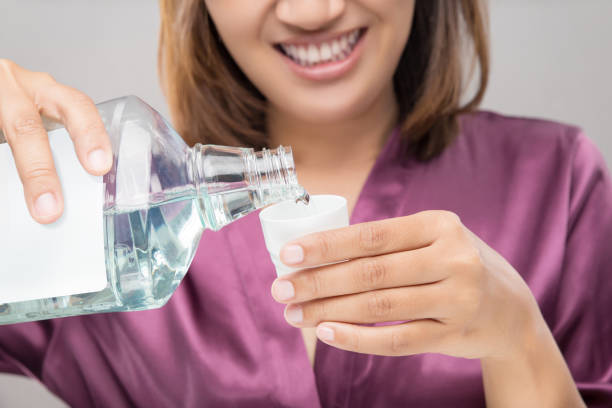Many people believe that using mouthwash regularly is one of the best ways to keep their teeth clean and healthy. However, is this really true? There are many factors to consider before making a decision whether or not to use mouthwash regularly.
Some people believe that using mouthwash everyday will help to remove bacteria and plaque from your teeth. Others feel that using it only when necessary will be just as effective. Must Buy Dentitox Pro.
Mouthwash is a common ingredient in many people’s personal hygiene routines, but some experts say that using it regularly can be harmful. Mouthwash can contain harsh chemicals and alcohol, which can damage the mouth and teeth.
It may also increase your risk of developing oral cancer. If you are unsure whether or not mouthwash is right for you, talk to your doctor or dental professional.
Introduction: What Is Mouthwash?
Mouthwash is a type of oral rinse that is used to clean the mouth and to freshen the breath. Mouthwash comes in many different flavors and can be bought over the counter or at a pharmacy.
It is important to use mouthwash regularly because it can help prevent tooth decay, gum disease, and other oral diseases.
Mouthwash is typically used after a person has brushed their teeth with toothpaste. The mouthwash is then swished around in the person’s mouth for a few seconds.
This can help to remove any toothpaste that has been left behind on the teeth and gums. Mouthwash is also used to remove bacteria or plaque from the inside of a person’s mouth. This helps to keep the mouth clean and healthy.
Mouthwash can be helpful in removing plaque, bacteria, and other substances from the inside of a person’s mouth.
Types Of Mouthwash
Mouthwash is an essential part of oral care. There are many different types of mouthwash, each with its own benefits and drawbacks. Some are effective at killing bacteria, while others are more concentrated and better at freshening breath.
It’s important to choose the right mouthwash for your needs, so read on for a breakdown of some of the most popular types.
Mouthwash can be classified based on their ingredients. Antiseptic mouthwash such as chlorhexidine has an antimicrobial agent which fights bacteria in the mouth. Antimicrobial agents are also found in astringent mouthwashes, which help to tighten skin around the lips and reduce swelling.
Salts such as potassium nitrate and sodium chloride work like a pea soup reduction, tightening blood vessels, minimizing swelling and improving appearance of lines and wrinkles around the mouth.
Menthol is a cooling agent that can soothe irritated gums while alcohol helps to remove toxins from the mouth. Antiseptic Mouthwash
There are several antiseptic mouthwashes on the market that contain antimicrobial agents. Chlorhexidine is a popular antiseptic mouthwash ingredient because it helps to fight bacteria and prevent tooth decay.
Some People Prefer To Use Mouthwash As A Replacement For Regular Tooth Brushing.
Some people prefer to use mouthwash as a replacement for regular tooth brushing. Mouthwash is typically more effective at removing plaque and bacteria from the teeth than toothpaste, and it has less of an acidic effect on the teeth. Some people also find that mouthwash is more refreshing than toothpaste.
Some people prefer to use mouthwash as a replacement for regular tooth brushing. Mouthwash can kill bacteria that can cause gum disease or bad breath. It also freshens your breath, which is an important consideration if you have a dry mouth.
Pros and Cons Of Mouthwash
There are a few pros and cons to mouthwash, which is why it can be such a personal choice. Some people find that the minty flavour helps freshen their breath and clarifies their teeth, while others find that it does nothing to improve their oral health.
It’s also important to keep in mind that not all mouthwashes are created equal – some can contain harsh chemicals that could potentially damage your teeth.
Mouthwash is an essential part of a healthy dental hygiene routine. It helps to remove plaque and bacteria from the teeth and gums, which can lead to tooth decay and other oral health problems.
However, mouthwash also has some potential drawbacks. It can be expensive, and it may not be effective if you have certain dental problems, such as a dry mouth or Cavity Disease.
